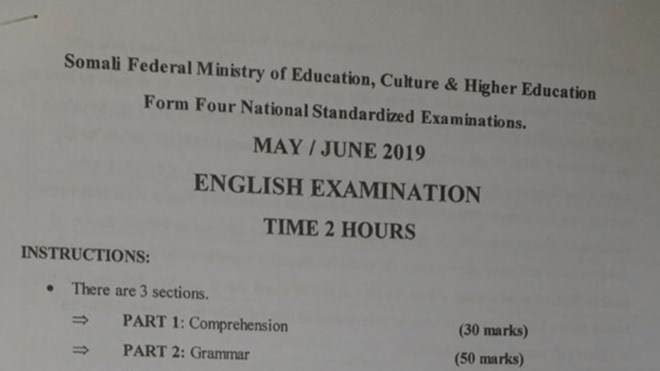National secondary exams in Somalia have been cancelled by authorities after papers were leaked on social media platforms, the Minister of Education Abdullahi Godah Barre confirmed on national television.
The national exams which began on Saturday, will see over 31,000 students affected over the cancellation. The exams had been scheduled to take place from 11-21st May.
The minister said that social media will be shut from 27 to 31st May, when the exams will take place, to curb the illegal circulation of papers.
Reports by the Radio Dalsan news portal indicates that students had taken to the streets in the capital, Mogadishu in protest to the decision.
Blocking social media because of academic reasons is a measure that a number of African countries have employed in recent years. Ethiopia took a similar path for two consecutive years. Algeria is also known to have done same – in both cases to preserve the integrity of the exams.
Social media shut down over exam leakages unjustified

Responding to reports that Somalia’s education minister has announced that social media may be shut down for five days from 27 to 31 May as one of the ways to stop cheating in the national secondary school exams, Amnesty International’s Deputy Regional Director for East Africa, the Horn and the Great Lakes Seif Magango said:
“It is ridiculous that the government would consider shutting down social media communications for the entire country after failing in its duty to secure the content of exam papers.
“They should instead explore ways to secure the integrity of the exams without resorting to regressive measures that would curtail access to information and freedom of expression.”
Background
On 13 May, Somalia’s Education Minister Abdullahi Godah Barre cancelled the national secondary examination which began on 11 May after discovering that exam papers had been leaked and were being freely sold to students. The minister said the exams would be retaken from 27 to 31 May. Students took to the streets on 14 May protesting the cancelation of exams.
A joint declaration by inter-governmental experts on freedom of expression in May 2015 stated that shutting down entire parts of communications systems, “can never be justified under human rights law.”
![]()





























